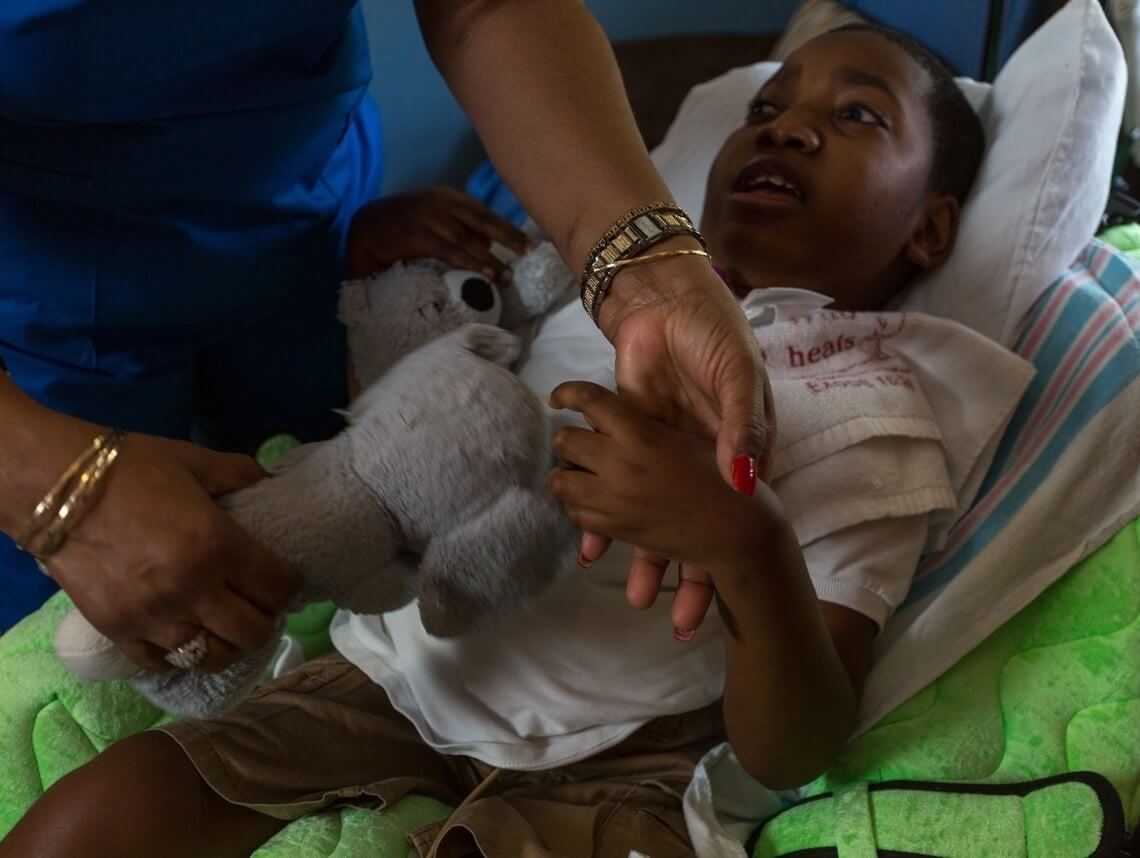
A.F. was a healthy boy until an accident in 2015. His mom, Feline, faced a parent’s worst nightmare when she found her son at the bottom of a swimming pool. She sat down with Care Options for Kids to recall her experience. “Even though I don’t know how to swim, I jumped in to get him.” But it was too late — although she was able to save her son’s life, he suffered extensive damage. Today, he’s quadriplegic. He needs 24/7 monitoring, g-tube feedings, and a tracheostomy for easier breathing.
“I’m glad I still have him with me,” she explains. “But it’s difficult because he requires constant monitoring.” That’s why she has two home health caregivers who help her care for her son in 12-hour shifts. “I’ve been doing this for the past five years, and finally, with Care Options for Kids, I have a company I can fully trust. They always have someone available to help me. And it has really made a big difference to our family.”
Feline describes how having caregivers make their lives better. “We also have another daughter, and since A.F. needs someone to be with him around the clock, having caregivers around allow me to take care of my other daughter, take care of our home, and run errands. And, when I’m home and able to care for A.F., watching the nurses take care of him give me confidence that I know how to do it well. I’ve learned a lot from watching them.”
One of her favorite nurses is Monica Waite, who’s been helping care for A.F. for almost a year. “I love that when she’s with A.F., 100% of her focus is on him. This gives me the confidence to know that I can leave the house to run an errand and I can fully count on her to take good care of him.”
Monica also sat down with us to discuss her experiences. “I’ve been a pediatric nurse for the past 25 years,” she explains. “I love children. I get them. I’m glad I’m able to pick up what they’re trying to communicate.”
On a typical day, Monica arrives for her shift and reviews a report from the nurse who covered the previous shift. She then greets A.F., prepares a formula for his G-tube feedings, and gives him his medications. She then turns on the TV and looks for cartoons, because they make A.F. happy. After a few hours, she gives him a bath, then gets him ready for physical therapy. “I work very well with him. We have forged a good relationship, and being at their home caring for A.F. — at this point — feels like being in my own home,” she affirms.
“I think my success as a nurse comes from truly loving children,” she explains. “A.F. may not be able to do much, but he recognizes my voice. As soon as he hears me, he calms down,” she recounts, smiling. “The key to doing this well is to treat him as if he were my own son. That’s what every child deserves.”
